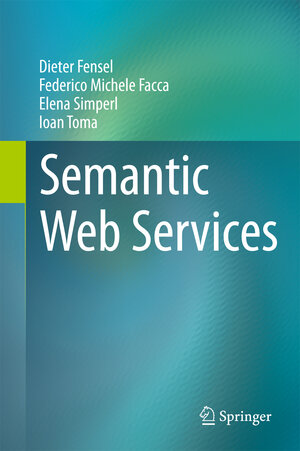
From the reviews:
“This book benefits from the extensive research track record of the authors combined with experiences gained in three large European projects with a combined budget of over 50M Euros. It is difficult to think of a more useful intellectual source for finding out about the Semantic Web Services area. If you are just embarking on a career as an ICT researcher, you are interested in services and/or semantics, or if you simply wish to catch up on the latest research in the Semantic Web area, then I thoroughly recommend that you read this book.” - John Domingue, Knowledge Media Institute, The Open University, UK and STI International, Austria
“Fensel … and academic colleagues capture the state of research directed toward moving the Web from its traditional broadcast model into one wherein the Web provides an infrastructure for accomplishing tasks. … Activities of Web standards bodies, university researchers, and commercial proof-of-concept applications constitute the scope of the book. … A reasonable index helps ameliorate the acronym issue. For researchers, the extensive end-of-chapter bibliographies are a particularly valuable contribution. … Summing Up: Recommended. Graduate students and above.” (C. Vickery, Choice, Vol. 49 (4), December, 2011)
A paradigm shift is taking place in computer science: one generation ago, we learned to abstract from hardware to software, now we are abstracting from software to serviceware implemented through service-oriented computing. Yet ensuring interoperability in open, heterogeneous, and dynamically changing environments, such as the Internet, remains a major challenge for actual machine-to-machine integration. Usually significant problems in aligning data, processes, and protocols appear as soon as a specific piece of functionality is used within a different application context.
The Semantic Web Services (SWS) approach is about describing services with metadata on the basis of domain ontologies as a means to enable their automatic location, execution, combination, and use. Fensel and his coauthors provide a comprehensive overview of SWS in line with actual industrial practice. They introduce the main sociotechnological components that ground the SWS vision (like Web Science, Service Science, and service-oriented architectures) and several approaches that realize it, e. g. the Web Service Modeling Framework, OWL-S, and RESTful services. The real-world relevance is emphasized through a series of case studies from large-scale R& D projects and a business-oriented proposition from the SWS technology provider Seekda.
Each chapter of the book is structured according to a predefined template, covering both theoretical and practical aspects, and including walk-through examples and hands-on exercises. Additional learning material is available on the book website www. swsbook. org. With its additional features, the book is ideally suited as the basis for courses or self-study in this field, and it may also serve as a reference for researchers looking for a state-of-the-art overview of formalisms, methods, tools, and applications related to SWS.



